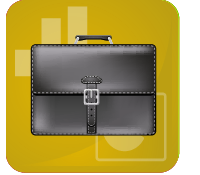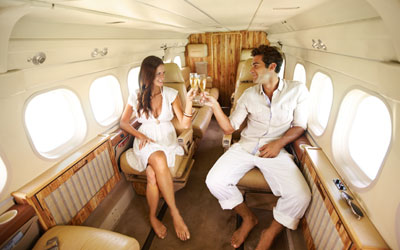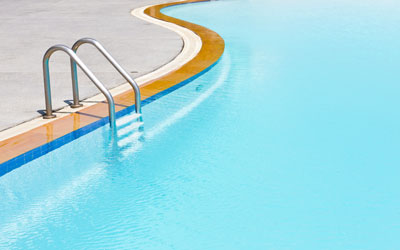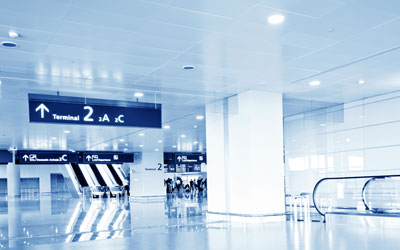Asking and Giving Directions
Maps - and map applications - are for whimps. Let's see how to ask for directions from REAL people!
Where is...?
Here are some nice, easy, questions to get us started:
- Où se trouve la gare?
Where is the train station? - Où se trouve le musée
Where is the museum? - Où se trouve la station de métro la plus proche?
Where is the nearest metro station ?
With 'Où se trouve' you are literally asking "where is this place found".
French-speaking countries tend to be a little obsessed with manners, so let's look at some formats which are a little bit more polite:
- Pouvez-vous m'indiquer où se trouve la gendarmerie la plus proche?
Could you tell me where the nearest police station is? - Pouvez-vous me dire où se trouve la station d'autobus?
Could you tell me where the bus station is ? - Pouvez-vous me dire où se trouve le musée?
Could you tell me where the museum is ? -
Pouvez-vous m'indiquer comment rejoindre l'aéroport?
Could you tell me how to get to the airport?
-
Pouvez-vous m'indiquer comment rejoindre le centre-ville?
Could you tell me how to get to the centre of the village?
The most important travellers' question, ever:
- Pouvez-vous m'indiquer où se trouve les toilettes?
Could you tell me where the toilets are?
Don't forget to say 'excuse me':
- Excusez-moi, où se trouve la gendarmerie la plus proche?
Excuse me, where is the nearest police station ? - Excusez-moi, Pouvez-vous me dire où se trouve l'arrêt de bus le plus proche?
Excuse me, where is the nearest bus stop?
Possible directions
Here are some of the most common directions which you might be given:
- Tourne à droite
Turn right - Tourne à gauche
Turn left - Continue tout droit
Go straight ahead - Prends la deuxième rue à gauche
Take the second street on the left. - Prends la troisième rue à droite
Take the third street on the right.
Want some more?
- Continue tout droit, jusqu'au rond-point
Keep going until you get to the roundabout - À l'église, tourne à gauche
Turn left at the church - Au prochain croisement, tourne à droite
Turn right at the next crossroads - Prends la prochaine à droite
Take the next right. - Prends la troisième à gauche
Take the third left.
Don't confuse 'croisement' with 'croissant'!
Location, location, location
- Le musée se trouve derrière la mairie.
It's behind the town hall. - Le parc est derrière la cathédrale.
The park is behind the cathedral. - La gare est sous le château.
The train station is below the castle. - Le château est près de la cathédrale.
The castle is close to the catedral.
Remember that places and buildings have gender in French:
- Elle se trouve derrière la mairie
It's (feminine) behind the town hall - Il est derrière la mairie
It's (masculine) behind the town hall
The generic pronoun 'Ça' can be used for both feminine and masculine nouns:
- Ça se trouve derrière la mairie
It's behind the town hall
Let's move on:
- C'est en face de la gare
It's in front of the train station - C'est à côté du Musée d'Orsay
It's next to the Musée d'Orsay
Near or far?
Before using these questions, remember that near and far can be relative concepts!
- C'est loin?
Is it far? - C'est près d'ici?
Is it close?
Possible responses:
- C'est loin d'ici
It's far from here - C'est proche du Parc de la Villette
It's close to the Parc de la Villette - C'est près du parc
It's close to the park -
Ce n'est pas très loin
It's not far
-
Ce n'est pas vraiment près d'ici
It's not very close
How long...?
Unless you're one of those hippy-drifter tyoes, you'll usually want to know how long it will take to get there.
- Combien de temps met-on à pied?
How long does it take by foot? - Combien de temps met on en autobus?
How long does it take by bus? - Combien de temps met-on à pied?
How long does it take to walk there ?
Asked the wrong person?
Don't always expect a helpful response!
- Tu n'as pas Google Maps? (informal)
Don't you have Google Maps? - Tu ne sais pas lire une carte?
Can't you read a map ? (informal) - Désolé/ée, je ne suis pas d'ici
I'm sorry, I'm not from here. - Désolé/ée, Je suis étranger/re
I'm sorry, I'm not from here. - Désolé, je ne sais pas.
I'm sorry, I don't know.
Trains and buses
If you are travelling around France or Belgium, you'll probably be using trains and buses frequently.
- Où se trouve la station d'autobus?
Where is the bus station?
Let's get a bit more sophisticated:
- Pouvez-vous m'indiquer où se trouve la gare?
Could you tell me where the train station is? - Excusez-moi, où se trouve la station de métro la plus proche?
Excuse me, where is the nearest metro station? - Excusez-moi, pouvez-vous me dire où se trouve la station d'autobus?
Excuse me, where is the bus station?
Asking about timings and timetables
- Combien de temps faut-il pour arriver au train?
How long does it take by train ? - Quand part le prochain train?
When does the next train leave? - D'où part le prochain train pour Nice?
From where does the next train to Nice leave? - Quand part le dernier bus pour Perpignan?
When does the last bus to Perpignan leave ? - Pouvez-vous me dire à quelle heure part le prochain train?
Could you tell me when the next train leaves ? - Pouvez-vous me dire à quelle heure part le dernier TGV pour Barcelone?
Could you tell me when the last TGV to Barcelona leaves ? - De quel quai part le train?
Which platform does the train leave from ?
Problems?
We've all done it haven't we? Think we're heading to the airport and end up in the 'burbs. Gotta ask dude!
- C'est le train pour l'aéroport?
Is this the train to the ariport? - Dois-je faire un changement de ligne ici pour aller à l'aéroport?
Do I have to change here for the airport?
Asking about the area
- Y a-t-il un bon restaurant près de l'hôtel?
Is there a good restaurant close to the hotel? - Y a-t-il de bons restaurants près de l'hôtel?
Are there any good restaurants close to the hotel?
How much does it cost?
Unless you're hitchhiking:
- Combien coûte l'autobus?
How much does the bus cost? - Combien peut coûter un taxi?
How much will a taxi cost? - C'est combien?
How much is it? - Combien ça coûte?
How much is it?
And finally
A varied selection of phrases to finish off with:
Prends la prochaine rue à gauche
Take the next street on the left
Prends la prochaine rue à droite
Take the second street on the right
L'appartement se trouve sur le supermarché
The apartment is above the supermarket.
La maison est à coté du fleuve / rivière
The house is next to the river
La maison est en face du parc
The house is opposite the park.
La mairie est en face de la gare
The town hall is in front of the train station.
Le musée est près d'ici?
Is the museum near here ?
L'hôtel est-il loin du centre-ville? / L'hôtel est loin du centre
ville?
Is the hotel far from the centre ?
Combien de temps faut-il pour rejoindre la côte en voiture?
How long does it take to get to the coast by car ?
Comment arrivons nous à l'aéroport?
How can we get to the airport?
De combien de temps nous avons besoin pour aller à l'aéroport?
How long do we need to get to the airport ?
Quel est le moyen le plus rapide pour aller à l'aéroport?
What's the quickest way to get to the airport?
Thanks for visiting!
Some other stuff here
This Course
Travel French

All the French you'll need (well, nearly all) when you are travelling in a French-speaking region.
Other sections in this course
General Travel French

There's a little bit of everything in this section. We politely draw readers' attention to our fantastically comprehensive class on giving and asking directions in French. It's a real belter!
In the Hotel

Going to a French-speaking country on holiday or for business? Here's our language survival guide to hotels and other forms of accommodation.
Restaurants and Bars

Welcome to our section on French for restaurants and bars. In the classes on this course we'll cover all the French we need to successfully communicate with the waiter or barman. In passing, we'll also learn tonnes of French vocabulary related to food and cooking.
Transport

sec intro
Shopping

Who doesn't visit a shop when they are on holiday? Whether it's shopping for Cartier jewellery on a plush Paris boulevard or just buying your daily bread from the local baker, you'll need a minimum of French in order to get by.
General Travel French
Other classes in this section:
Asking and Giving Directions

Everything you need to know about asking for directions in French, and understanding the response.
Museums, art galleries, etc, etc

If museums and art galleries are your thing, then this is the class for you. We take a look at the essential vocabulary you'll need to talk about art and culture, as well as the practical language you need when you visit cultural attractions.
Simple French for Travellers

nothing
